#KwaZulu-Natal Province
Explore tagged Tumblr posts
Text
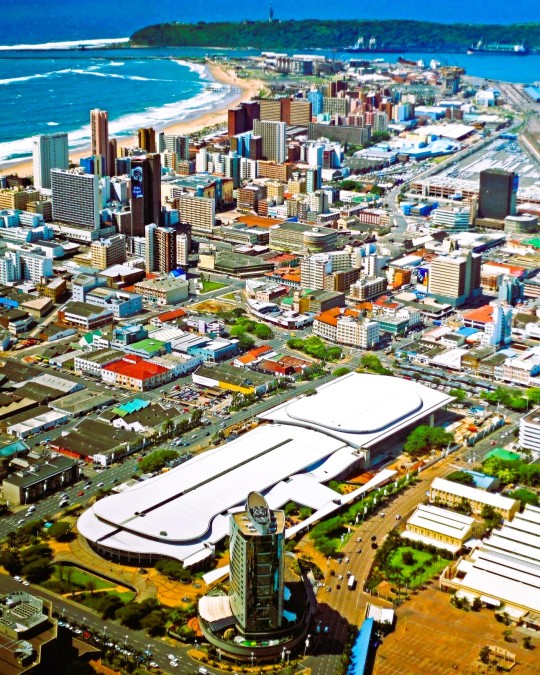
Durban, South Africa: Durban is the third-most populous city in South Africa, after Johannesburg and Cape Town, and the largest city in the province of KwaZulu-Natal. Situated on the east coast of South Africa, on the Natal Bay of the Indian Ocean, Durban is South Africa's busiest port and was formerly named Port Natal. North of the harbour and city centre lies the mouth of the Umgeni River; the flat city centre rises to the hills of the Berea on the west; and to the south, running along the coast, is the Bluff. Wikipedia
120 notes
·
View notes
Photo
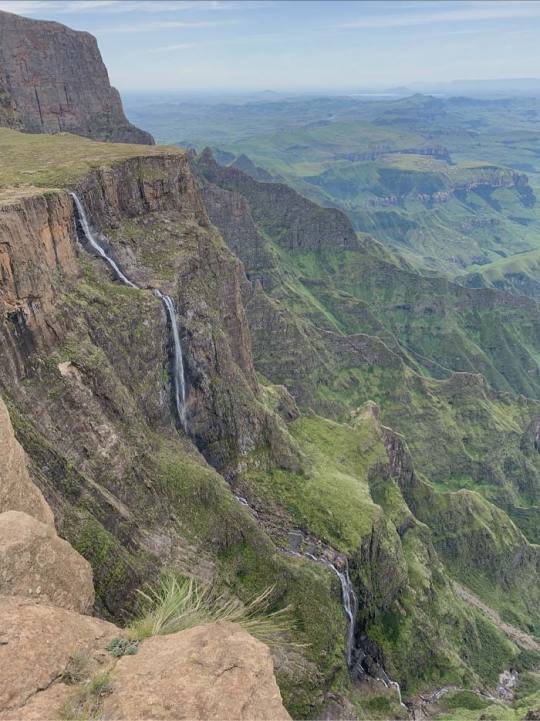
The Tallest Waterfall In The World Is Tugela Falls
In the KwaZulu-Natal Province of the Republic of South Africa, the Drakensberg of Royal Natal National Park is home to the complex of seasonal waterfalls known as Tugela Falls. With an uninterrupted leap of 411 m (1348.43 ft) and a total drop of 947 m (3106.96 ft), it may be the tallest waterfall on Earth, according to some measurements.
Photographer: Juniper339
#juniper339#photographer#waterfall#tugela falls#kwazulu-natal province#south africa#drakensberg of royal natal national park#landscape#nature
93 notes
·
View notes
Text
Apply for 2024 Admission in Your Province
To apply for admission in South African provinces, you generally need to follow these steps: Research the Institutions. Check Admission Requirements. Prepare Documents. Complete the Application Form. Pay the Application Fee. Submit Application. Wait for your Response. Acceptance and Enrollment. Apply for 2024 Admission in any SA Province Choose Your Province and Apply for the 2024 Admission…

View On WordPress
#Eastern Cape#Free State#Gauteng#KwaZulu Natal#Limpopo#Mpumalanga#North West#Northern Cape#Province Western Cape
0 notes
Text
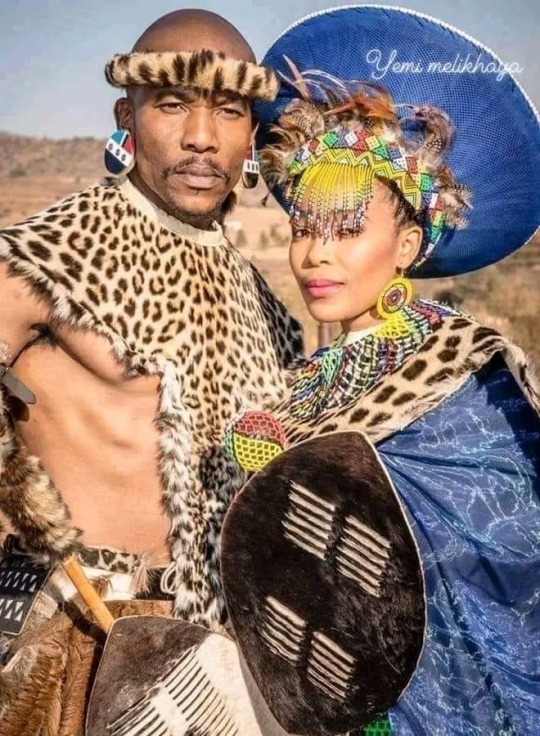
The word Zulu means "Sky" and IsiZulu is South Africa's 🇿🇦 most widely spoken official language. Zulu people refer to themselves as 'the people of the heavens' and they are the largest ethnic group of South Africa, with an estimated 11 million Zulu residents in KwaZulu-Natal. The largest urban concentration of Zulu people is in the Gauteng Province, and in the corridor of Pietermaritzburg and Durban. The largest rural concentration of Zulu people is in Kwa-Zulu Natal. In the 19th century, they merged into a great kingdom under the leadership of Shaka Zulu.
34 notes
·
View notes
Text
Since it's the end of the year, I thought we could do a different kind of post and look at one of the new isospecies described in 2024 in a little bit more detail!
So everyone behold:
Pseudionella pumulaensis, Williams & Landschoff [1]

This small isopod (female holotype length: 3.4 mm, male allotype lenght: 1.4 mm) is a newly described isopod in the family Bopyridae found in a rocky subtidal reef on the eastern shore (in the KwaZulu-Natal province) of South Africa. It is a parasitic species, with its host being the hermit crab Pagurus fraserorum, where it occupies the branchial chambers (the "gills").
Its name, pumalensis, refers to the place where it was first discovered: Pumula in KwaZulu-Natal. Pumulua is also Zulu for "a place of rest".
#isopods#pseudionella pumulaensis#if you liked this type of content please let me know so I can make more
18 notes
·
View notes
Text
I should probably introduce myself.
Hi🪷 I'm Poly MC, otherwise known as Fairwish and Chanzé, and I'm in polyamorous relationships with all 7 of the demon brothers in Obey Me!. This is my new Role Play account where I will be able to live out that dream🌼 Yay🎉
For more info on me: Lore dump
I would like to say hello to my role-play husbands @ask-belphegor, @stn-tmblr, @lucifer-morningst4r , @lord-of-burgers, @the-great-mammon-01, @asm0b4by, @l3v1uhthan (sorry for spamming and if I didn't add all of your different accounts). Hi🪻 I look forward to role-playing as your partner☺️ And hello to my sister-in-law, @8th-sisterlilith 🌻 I hope we can become good friends ☺️
Oh and my father-in-law, @celestial-realm-leader. Hi 🙂
And I would like to say hello to my role-play children, if you would do me the honour of having me as a parental figure (sorry, I couldn't quite figure out the colours thing and sorry for spamming you too) @cynthiathebettertwin, @aspenthetwin , @pridesson , @luv4j3llyfish , @thestarandtheghost , @shu1chi , @joy-yeah, @tomiokagiyuufirststan and @jewelofhell. I look forward to role-playing as your Umi🌺 "Umi" is short for "umzali", which means "parent" in Zulu, which is one of my 2 cultures. My bio dad is Zulu and my other culture is Afrikaans.
IMPORTANT: This is not to be confused with the meaning of "umi" from any other languages (aside from the Japanese "umi", which means "sea". "Sea" is one of my pronouns. More on that in the next paragraph). I decided to use "umi" as a term for my children to refer to me, because it's derived from a gender neutral term for a parental figure (umzali = parent), in my culture. I also decided on this term, because it would be so much easier for a child to learn how to say when learning how to speak. So, it also makes sense for my children's developmental needs.
Speaking of which, I'm non-binary 💜🤍💛🖤 and my pronouns are sea/star. So in a sentence, it would look like: Sea is very happy to be here. Sea hopes you enjoy star poetry. Basically, you replace "she" with "sea" and "her" with "star". So, me deciding to use "umi", along with my pronouns, works on multiple levels. Especially considering that I've always had a deep connection with the ocean, that I could never quite explain. But I think it's because my Zulu heritage originates from KwaZulu-Natal, a coastal province in South Africa.
Also whenever people refer to me, using these pronouns, it makes me feel like a fairy, sitting on a leaf and watching the ocean under a night sky😌 Like, I feel like a better version of myself. Like the me that I've always wanted to be🌌 That's right, bitch we're getting existential now! And I'm completely sober. It makes me feel like someone I can actually look up to, which I think is just absolutely insane🤯 I mean, I NEVER thought that I could feel that way. I've never seen myself as someone worthy of being looked up to, praised or admired by anyone, much less myself. But here I am! Making my inner child proud, just by using those pronouns, so ja☺️
Also, as I've mentioned, I'm Afrikaans and I LOVE Afrikaans music, so look forward to me posting English translations/interpretations for Afrikaans songs.
I also dabble in poetry, so look forward to that too. Though, some of my best poems I've written are in my old phone, which I spilled hot chocolate on. And now the motherboard is fucked😭
Here are the rules:
1. Asks are open.
2. No NSFW asks. I'm happily married to my boys, thank you. Weed is fine, though.
3. Romantic asks are reserved for the brothers ONLY.
4. Please be respectful. No hate/bigotry will be tolerated here.
5. While I am NOT a mental health professional, despite what some of you may think, I am willing to listen to any struggles that you may have. So I can't give you any advice (because I don't know the full context of your situation and, once again I'm not a specialist) but if you need a friend who will listen, I'm here for you. However if you're looking for advice, then I suggest you go to a licensed professional.
And uh...what else?... Let's just have fun🤷🏽🎉
Oh! And if you have any asks about South Africa or the Afrikaans language, please don't hesitate! I'd be happy to share🇿🇦 Who knows, I might actually learn something about my own country in the process ☺️
#obey me shall we date#afrikaans#poets on tumblr#obey me mc#south africa#autism#adhd#transgender#non binary
19 notes
·
View notes
Text
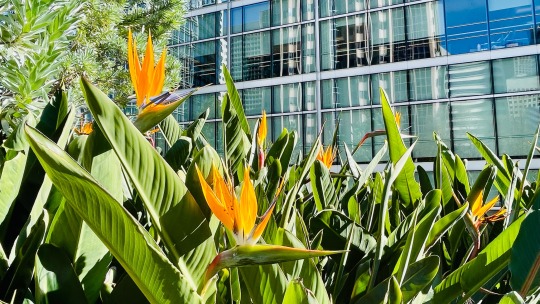
Had a great time the Salesforce Transit Center Garden in San Francisco CA. These Strelitzia reginae, commonly known as the crane flower, bird of paradise, or isigude in Nguni, is a species of flowering plant native to the Cape Provinces and KwaZulu-Natal in South Africa. An evergreen perennial, it is widely cultivated for its dramatic flowers. In temperate areas it is a popular houseplant. So amazing so see the garden with these ☺️☀️🌴
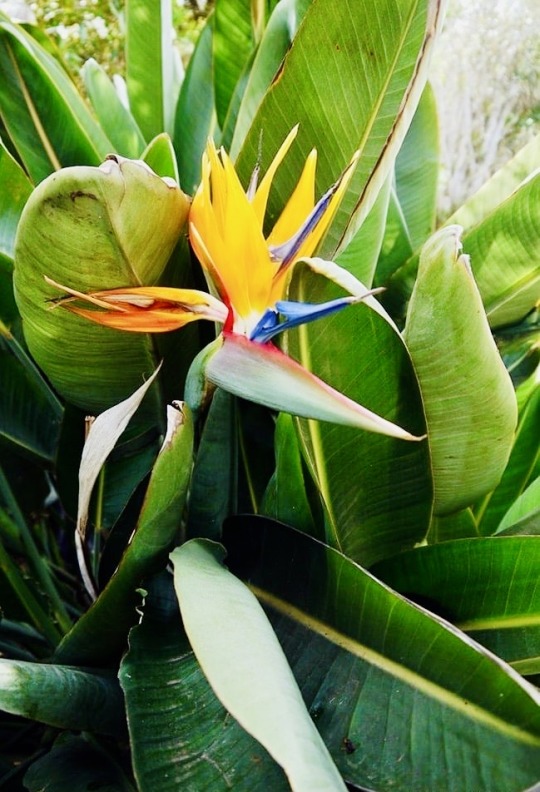
#garden#san francisco#downtown#bird of paradise#flowers#tall plants#tropical#travel#explore#nature#colorful#discover#photooftheday#close up#bay area
8 notes
·
View notes
Text
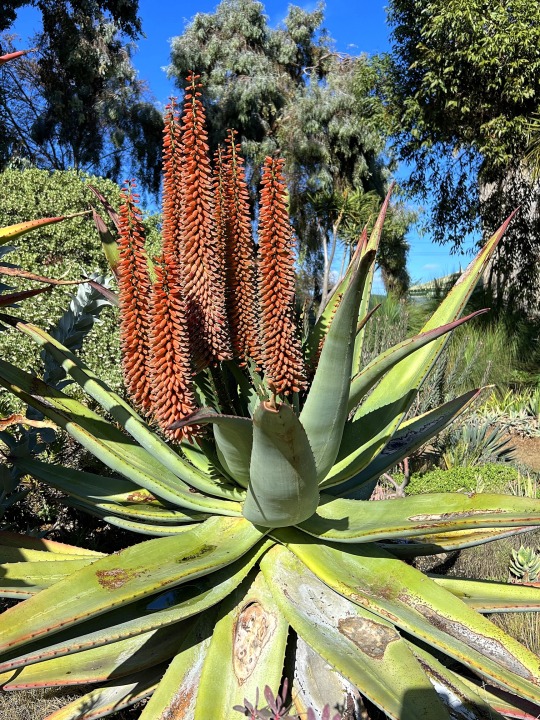
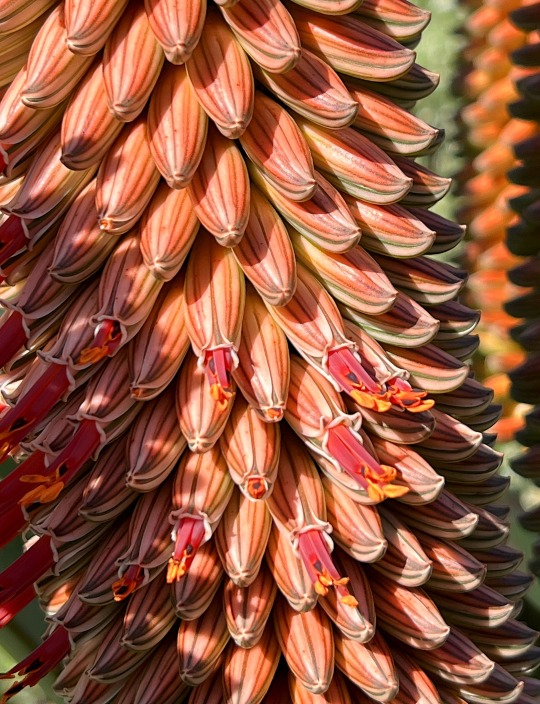
Aloe ferox
Aloe ferox has a large distribution in South Africa, and it comes in a wide range of flower colors, from red to orange to pink to white to yellow. The eastern form of the species, from KwaZulu-Natal Province, tends to have longer leaves and flowers with white-rimmed mouths, as is visible here. The former name for this form was Aloe candelabrum, but most people now treat this as a synonym of Aloe ferox. In addition to having beautiful flowers, this species has many medicinal uses.
-Brian
44 notes
·
View notes
Text
In the days before South Africa’s May 29 election, there was a euphoric atmosphere in parts of the cosmopolitan but largely Zulu port city of Durban. People who would usually pass each other anonymously could be overheard telling each other, “We are going to fix the country!” There was, though, an ugly underside to this, with current President Cyril Ramaphosa, who is from the smaller Venda ethnic group, often dismissed in vulgar ethnic terms.
The African National Congress (ANC), after 30 years of comfortable rule, took a heavy blow in this election. It secured only 40.2 percent of the vote nationally and took its hardest hit in the province of KwaZulu-Natal, where Durban is located. There, it came in far behind the newly formed uMkhonto weSizwe (MK) party—whose figurehead is former President Jacob Zuma. MK finished first with almost 46 percent of votes for the national assembly, taking a large number of votes from the ANC—which won around 17 percent—and many from the Zulu-nationalist Inkatha Freedom Party.
KwaZulu-Natal is South Africa’s second-most populous province—and it is notorious for political violence—including open armed battles fought through the late 1980s and early 1990s, assassinations, and major riots in July 2021.
The electoral success of Zuma’s new party in the recent election has raised fears of further violence.
Organized around the charisma of Zuma, who was the staggeringly corrupt president of South Africa from 2009 to 2018, the MK party takes its name, meaning “spear of the nation,” from the armed wing of the ANC formed by Nelson Mandela and others in 1961. The party lays claim to that history and has adopted a militaristic posture.
Apartheid was, of course, not brought down by that army, which was, in military terms, a failed project. Before Western opinion turned at the end of the Cold War, apartheid was rendered nonviable by the mass democratic politics that began with a series of strikes in Durban in 1973, a popular movement that does not appear in Zuma’s militaristic misrepresentation of political history.
MK endorses an extreme version of the authoritarian populism that has surged in elections around the world. It is best described as ethnically inflected nationalism; while the party has an anticolonial dimension in so far as it seeks to build a counter-elite, it is also socially predatory and deeply conservative on social issues. Zuma has suggested doing away with same-sex marriage, which has been legal in South Africa since 2006; elevating aristocratic tribal authorities over elected representatives; holding a referendum on the death penalty; hiring more police officers; and introducing conscription.
Like other authoritarian populist parties in South Africa and elsewhere, Zuma’s party also takes a hard-right line on immigration. This is a matter of serious concern in South Africa, where African and Asian migrants are often targeted by the state and, periodically, by violent mobs.
MK also has a clear ethnic dimension. This is in sharp contrast to the ANC, which was founded in 1912 with an explicit commitment to build a national sense of African identity that eschewed the politicization of ethnic identities. It remains an ethnically diverse organization led by a member of an ethnic minority group.
Like figures such as Hungary’s Viktor Orban, MK is also enthusiastically pro-Putin. Some MK supporters have been seen wearing T-shirts with side-by-side images of Zuma and Russian President Vladimir Putin.
But unlike forms of right-wing populism elsewhere, MK also promises economic inclusion in a country where impoverishment and inequality are rampant, along with the effective provision of basic services. It proposes nationalizing banks, mines, and insurance companies; expropriating land and placing it under the control of the state and traditional authorities; and providing free education and full employment.
Due to this platform, newspapers outside South Africa have sometimes referred to Zuma’s party as being “far left.” But the left in South Africa has not rallied in support of MK’s proposals for expropriation and nationalization—largely because Zuma’s record during his nine years as president was dire in terms of creating jobs; providing basic services, decent health care, education, and public housing; and achieving long-promised land reform.
Indeed, corruption during Zuma’s presidency did massive damage to the state, its institutions, and its publicly owned companies and was so extreme that a single family took in just under 50 billion rand (then around $3.2 billion) from public budgets in what came to be known as “state capture.” Zuma’s presidency was also marked by a sharp increase in state repression, including the massacre of 34 striking miners by South African police in 2012 and frequent assassinations of grassroots activists.
A number of commentators across the political spectrum have reduced Zuma’s popularity and electoral success in KwaZulu-Natal to “tribalism,” sometimes with the implication that atavistic forces are at play. The recourse to this deeply colonial idea of the “tribe” is unfortunate. But the ethnic element in Zuma’s politics cannot be overlooked either.
Zuma has sought to stoke ethnic sentiment since he was tried for rape in 2006, when, along with chanting, “Burn the bitch,” in reference to his accuser, some of his supporters wore T-shirts with the slogan “100% Zuluboy.” In the lead-up to the recent election, it was common to hear people in Durban speak of the need to achieve the unity of the Zulu people.
KwaZulu-Natal has a long history of violent ethnic mobilization. Mpondo people from the neighboring Eastern Cape province have been sporadically attacked and driven from their homes for more than a century, including when ethnic sentiment escalated as Zuma ascended to the presidency in 2009.
In the late 1980s and early 1990s, there was open war between Inkatha, then a conservative Zulu-nationalist organization backed by the apartheid state, and the United Democratic Front, a popular anti-apartheid organization that allied itself with the ANC in exile. It is estimated that around 20,000 people were killed between the late 1980s and early 1990s. The apartheid state saw Inkatha as a conservative ally against the Soviet-linked ANC and an ally equally opposed to the ANC’s vision of a unitary democratic state.
The war came to an end when, in secret negotiations between the last apartheid president, F.W. de Klerk, and Inkatha leader Mangosuthu Buthelezi on the eve of the first democratic election, huge concessions were made to Inkatha, most notably via the massive transfer of land in KwaZulu-Natal—around 11,000 square miles, almost the size of Belgium—to the Zulu monarchy. This boosted the power of what is termed “traditional authority” over democratic authority, as people living on the land must pay rent to a trust headed by the Zulu king and are governed by customary law administered by traditional leaders.
The end of the war did not bring peace, though. The province swiftly became notorious for political assassinations within the ANC, between the ANC and other parties, and against grassroots activists. Many hundreds of people have been killed. The problem of assassinations was never seriously dealt with in the province and, as a result, has been steadily making its way into other parts of the country.
In the latter years of Zuma’s presidency, he sought to protect himself against mass outrage at brazen corruption by cynically spinning his government’s kleptocracy as “radical economic transformation.” This was taken up outside of the state by armed so-called business forums that shook down established businesses at gun point and by local party gangsters who appropriated public land for private profit. The capacity for violence developed in this milieu includes access to professional assassins and, in some cases, local militias.
In July 2021, when Zuma was briefly jailed for being in contempt of court, KwaZulu-Natal was ripped apart by riots in which 354 people were killed. The riots were sparked by a breakdown in the social order as supporters of Zuma, some dressed in military fatigues, openly attacked migrants from elsewhere in Africa in downtown Durban while the police stood down. There were also more covert attacks on trucks on the main road to Johannesburg, and many were left burnt. Again the police stood down.
The riots began with the mass appropriation of food in a carnival atmosphere. In the main, there was not much sense that this was a political event, and many participants were clear that they were not motivated by support for Zuma. But the riots soon took on a more ominous tone, and infrastructure was systematically destroyed by groups of armed men acting with military precision. Zuma’s daughter Duduzile Zuma-Sambudla celebrated the destruction on social media.
Now that the country is suspended between an election result that fundamentally changes its politics and the outcomes of the ongoing high-stakes negotiations to form national and provincial governments, the atmosphere in Durban is more febrile than euphoric.
False claims are being pushed through social media with a startling velocity, with Zuma-Sambudla taking a leading role in the promotion of conspiracy theories. There has been a particular focus, repeated by Zuma in various public statements, on the Trumpian move of declaring, without evidence, that the elections were rigged. The general view is that Zuma and his supporters are making this claim to set the stage for violence, although it is not quite clear what their intentions are.
It is common to hear people say that when the new provincial government comes into power, migrants will be “dealt with” and ethnic minorities will “know their place.” It is not uncommon to hear talk of secession, of an independent Zulu kingdom. There are widespread fears of coming violence, something that a number of grassroots activists say is inevitable. Mqapheli Bonono, one of the most prominent grassroots activists in Durban, said: “There will definitely be violence. We don’t know when or where, but for sure it’s coming.”
Migrants have already been threatened and intimidated. Last Wednesday, an MK organizer was gunned down in Durban. Although there is not yet any evidence of a specific motive, it is being reported by some media as a political killing. It is widely assumed that this is the beginning of an internal struggle for positions and power within MK. Some ethnic minorities fear that they may have to move out of the province. Some have returned to rural family homes outside the province while they wait to see how things play out.
Ramaphosa wishes to establish a national unity government so the ANC can continue to govern the country. It is not yet clear if this will work or if MK will participate in such an arrangement. In KwaZulu-Natal, it is possible that a deal between other parties could keep MK in opposition despite it winning the largest share of the vote. If MK is not part of the deal struck to form a national government, tensions will inevitably escalate. This will be dramatically compounded if the party is kept out of government in KwaZulu-Natal by an alliance of other parties.
If MK does form a government in KwaZulu-Natal, the country will have its second-most populous province governed by a political force directly opposed not just to the national government but to the principles and legal foundations on which the country was founded.
The militaristic posture of Zuma’s party escalates fears of violence, and Zuma himself often makes implicit threats of violence via dog whistles. Speaking in English, he has warned that he should not be “provoked.” Speaking in Zulu, he has said: “Abasazi singo bani” (They don’t know who we are).
The idiomatic meaning here is clear, but, in literal terms, South Africans know exactly who Zuma and his party are.
10 notes
·
View notes
Note
What is Nia's backstory in your headcanon? Has she had some interesting incidents like for example, crashing into the stationmaster's house or accidentally leaving the guard behind?
Hi! Well for starters, Nia is actually narrow gauge in my au (a NGR Class N 4-6-2T 1906/South African NG 4-6-2T 1906)

Nia was built by and for the Natal Government Railways in 1906, she worked around the KwaZulu-Natal province mainly the Weenen-Estcourt line where she worked for mixed traffic either delivering produce (after all the line was known as the Cabbage Express) then after being sold off to the Moçâmedes Railway in 1915 she ends up globetrotting about in South Africa and neighboring regions like the Cairo to Cape Town line (she was also a participate in ww1 delivering supplies to the locals she had entirely mixed emotions which is why she secretly leaves but ends up in Western Front where she meet Freddie and Stanley)
The trio ended up bouncing around together thanks to Stanley's "jinx" though both familial figures never held any grudge against him and defended him especially during their old railway (not the msr) where they were all mistreated badly, especially Stanley thanks to his "bad luck" the manager who also hailed from South Africa (the Western and Eastern Cape) often used Stanley being mistreated by the other engines as leverage where she and very fierce arguments with until he got rid of her (his uppercommence doesn't come until years later
She came to the Mid-Sodor in the late 1920s where she worked in the mines with Millie, Luke, Bertram and Atlas so when Stanley finally was reunited with her and Freddie in 1938, they're quickly took him under their nonexistent buffers to show them the ropes, when the railway started in decline after ww2, Nia was along soem of the engines who willingly themselves herself to be sold off to keep the railway afloat, wanting Stanley to having a regular working service.
She, Luke, Mighty Mac and Freddie were actually brought together to work at the aluminum works and electric power station companies. Now she tends to work on the either the skarloey's northern end of the line doing shunting at the quarries, being part of the Gleigh Fell Quarry Company, she now works with Luke Freddie and mighty Mac the most occasionally she takes up maintenance alongside atlas rusty and Fred even the weed killer train which she doesn’t mind often taking advantage of being alone with her thoughts and observing her new surroundings
Like She sometimes also helps taking passengers on the narrow gauge express that runs alongside with duke from ulfstead to crovans gate, even to the estate railway and even revisiting the cronk and harwick scenic heritage railway where’s shes reunited with kwaku after discovering he wasn’t scrapped and helps with her recovery of survivors guilt
Fun fact she was the maintenance engine for the skarloey railway until atlas comes in who in turn he and Nia take rusty under their nonexistent buffers, she’s tends to sees all of them (Falcon they bond over their fear of heights, Stuart cause he's cheeky she keeps Andreas on his wheels when he gets too big-headed), as brothers/siblings/familial, Luke and Stanley are her kids. She's a polygot and is one of the engines who helped Ivo Hugh learn to "speak" with whistles/morse code though she does have to tendency to put her work first before her own needs and health like if she's working with someone who's is giving her a difficult time or a mechanical issue she tries to complete the job first (having participated in a war totally doesn't help at all)
Nia often sings when she works to help her concentrate. She’s pretty popular with the coaches and passengers because of it. Unlike Duke's relationships, she and Stanley tease each other and push each others buttons, but it’s all in good fun. And when push comes to shove, they’ll always have each other’s backs. The other engines assume that Stanley or Freddie is Nia’s best friend, and while she does think he’s a good friend, he’s not her best friend. That honor goes to Millie, having also been part of a war but they got along swell the moment they met at the mines on the MSR, Nia offers to take passengers or anything to visit Millie at the Ulfstead Castle and keeps her updated on everything, from gossiping to a quick chat.
When they first met Duncan and Nia 100% teach each other swears. Why, imagine the thin controller’s (sir Handel Hans brown) surprise when he overheard Nia calling a particularly rude passenger a… well I don't think it’s best to know. And to be fair it was well deserved after the passenger called Luke and Stanley names and drove Luke to tears (bonus: Stanley joins in) She also expressed disappointment and tried to help both sides with strict tough yet understanding love over the remaining MSR engines treatment of Duncan when Andreas scarified himself and ended up in a coma
Some interesting incidents included her nearly falling off the tracks which was off the cliff during her wartime years, hence her fear of heights (she and Falcon bond over that), searching in the crystal caverns alongside some of the narrow and standard gauge engines Nia also has a flower garden and greenhouse I’m still figuring out where I’m thinking at Cros-by-curin by or inside the apple orchard but somewhere alongside the skarloey railway and she loves completing puzzles during game nights (she's up to a 1000 pieces right now) her and Stanley info dumping about creepy animals (she wants to see Duke squirm as she’ll clap back without hesitation for her loved ones or she and Stuart quiz each other with numbers equations or stargazing with kwaku and her friends
#ttte#ttte nia#ttte freddie#ttte fearless freddie#ttte stanley#ttte millie#ttte luke#ttte atlas#ttte bertram#ttte mighty mac#ttte mighty#ttte mac#ttte duncan#ttte peter sam#ttte sir handel#ttte duke#ttte falcon#ttte stuart#ttte kwaku#ttte ivo hugh#mighty mac#sir handel#peter sam#thomas and friends#skarloey railway#ivo hugh#duke the lost engine#my asks#answered asks#ask
11 notes
·
View notes
Photo
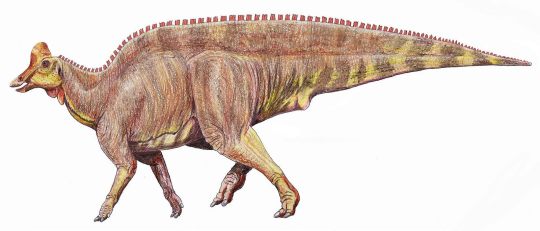
Cryptid of the Day: Silwane Mazzi
Description: Silwane Mazzi means “unpleasant water animal” in Bantu, and was seen in South Africa’s KwaZulu Natal Province. In 1937, Aleko Lilius saw a dinosaur-like creature, that left 3 toe, 16 in long footprints near the Mofolozi River. Cryptozoologists think the creature is a living Hadrosaur, while skeptics think it’s a misidentified crocodile.
44 notes
·
View notes
Text
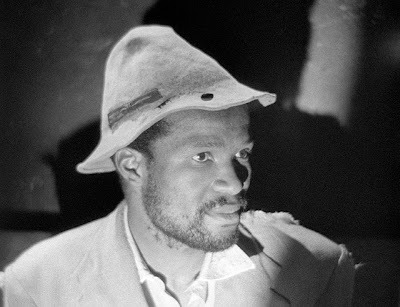
Zachariah Mgabe in Come Back, Africa (Lionel Rogosin, 1959)
Cast: Zachariah Mgabe, Vinah Bendile, Miriam Makebe, Lewis Nkosi, Bloke Modisani, Can Themba, Myrtle Berman, George Malabye, Morris Hugh, Hazel Futa. Screenplay: Bloke Modisani, Lewis Nkosi, Lionel Rogosin. Cinematography: Ernest Artaria, Emil Knebel. Film editing: Carl Lerner, Hugh A. Robertson. Music: Chatur Lal.
Filmed surreptitiously and edited with skill, Lionel Rogosin's Come Back, Africa is everything a docufiction film should be, with the chief weakness being the fiction part. It's a revelatory exploration of apartheid in South Africa, concentrated on Johannesburg, that gets its focus by following the misadventures of Zachariah Mgabe, which is also the name of the actor who plays him. Zachariah comes to Johannesburg in search of work, leaving his wife and children in what is now the KwaZulu-Natal province. He finds work in the gold mines, but when the agreed-upon term of employment is over, he wants something that pays more. He negotiates the "pass laws," a notorious system of internal passports devised by the white South African government to enforce segregation, and finds work as the "house boy" for a white couple. But the mistress of the household, played by anti-apartheid activist Myrtle Berman, constantly scolds, berates, and finally fires him, so Zachariah moves from job to job, encountering suspicion and contempt from the white employers. Things become more desperate when his wife, Vinah (Vinah Bendile), and their children join him in Johannesburg. The film vividly explores the street life of the city, and climaxes in a scene set in a shebeen where Black intellectuals discuss their situation and Miriam Makeba, already a celebrity in the country, sings two songs -- a superb performance that helped launch her international career. But the narrative thread of the film isn't sustained as well as the documentary scenes and after an act of brutality that isn't set up properly, the film ends on a harsh but inconclusive note.
2 notes
·
View notes
Text
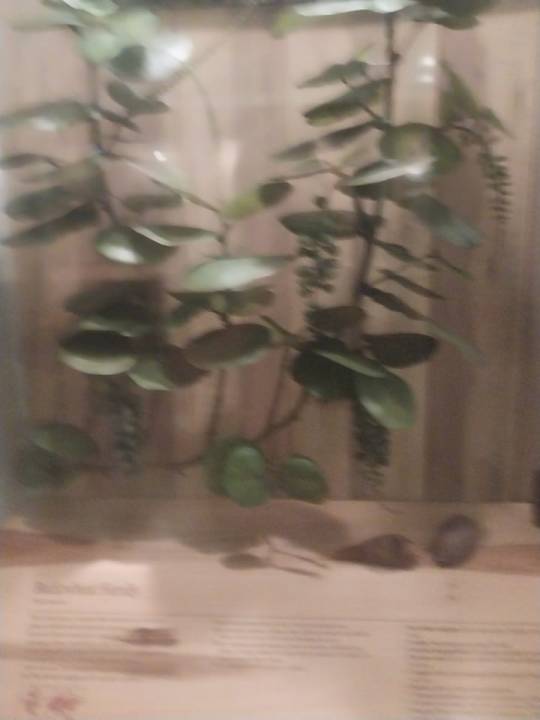
#Crassulaovata, commonly known as jade plant, lucky plant, money plant or money tree, is a succulent plant with small pink or white flowers that is native to the KwaZulu-Natal and Eastern Cape provinces of South Africa, and Mozambique; it is common as a houseplant worldwide.[2] Much of its popularity stems from
2 notes
·
View notes
Text

https://www.reuters.com/world/middle-east/israel-allows-un-bring-more-equipment-amid-gaza-lawlessness-2024-07-15/
3 notes
·
View notes
Text
This is a poem I wrote for my child. She's a cat❤️ Also, "umi" is short for "umzali", which means "parent" or "caregiver" in Zulu. My bio dad is Zulu so, because I'm non-binary, I've decided to use this term to address myself as a parent. "Umi" also means "sea" in Japanese and my pronouns are sea/star, so it's actually perfect on multiple levels lol. Especially considering that I've always had a deep connection with the ocean, that I could never quite explain. But I think it's because my Zulu heritage originates from KwaZulu-Natal, a coastal province in South Africa. Anyway, here you go:
The Monster in My Bedroom
For Bubbles
There is a monster in my bedroom.
A horrid little nuisance with one beady red eye and a captivating glow about it.
It moves across the tiles,
along the walls
and any other objects its path.
Pouncing on them like a spider.
There is a monster in my bedroom.
It moves faster than the speed of light,
leaving a trail of fiery destruction everywhere it goes.
It disappears and reappears across the room with a simple, but taunting sound:
"click-click, click-click".
I turn my head to see where the sound is coming from...
There is monster in my bedroom
and my umi is its master.
2 notes
·
View notes
Text
Rachel Savage at The Guardian:
Final results from Wednesday’s seismic South Africa elections have confirmed that the African National Congress (ANC) party has lost its majority for the first time in 30 years of full democracy, firing the starting gun on unprecedented coalition talks. The ANC, which led the fight to free South Africa from apartheid, won just 159 seats in the 400-member national assembly on a vote share of just over 40%. High unemployment, power cuts, violent crime and crumbling infrastructure have contributed to a haemorrhaging of support for the former liberation movement. The pro-business Democratic Alliance (DA) won 87 seats, uMkhonto weSizwe (MK) – a new party led by President Cyril Ramaphosa’s bitter rival, the former president Jacob Zuma – took 58, and the Economic Freedom Fighters (EFF), a Marxist-Leninist party led by the ousted ANC youth leader Julius Malema, took 39.
The ANC also lost its majority in three provinces: Northern Cape; Gauteng, which is home to the commercial centre Johannesburg and the capital, Pretoria; and KwaZulu-Natal, where MK was the largest party. “What this election has made plain is that the people of South Africa expect their leaders to work together to meet their needs,” Ramaphosa told an audience of politicians, diplomats and civil society leaders after the official results announcement, as thunder rumbled outside. “They expect the parties for which they have voted to find common ground, to overcome their differences, to act and work together for the good of everyone.” Ramaphosa also joked, to laughter from the crowd, that he wished it was true when the electoral commission chair accidentally said that he was announcing the 2029 election results. The president faces questions about his future, though, as the ANC turns to the task of coalition building. Meanwhile, a spokesperson for Zuma’s MK party said they had boycotted the election results event.
Zuma had warned before the results announcement that it should not go ahead, saying “people would be provoked”, raising the spectre of the deadly riots that broke out when he was sent to prison in 2021. The position of Ramaphosa was not on the table during the coalition talks that will now take place, the general secretary of the ANC said before the final results were announced. ANC secretary-general Fikile Mbalula told a press conference at the election results centre: “If you come to us with a demand that Ramaphosa must step down as the president, that is not going to happen … It’s a no-go area. You come to us with that demand, forget it.” MK leaders have said they will not work with the ANC while it is led by Ramaphosa, who Zuma is hell-bent on exacting revenge against. Zuma was president from 2009 to 2018 and was forced to resign by the ANC amid corruption allegations, which he denies.
[...] A tie-up with the DA could be favoured by the more business-friendly wing of the ANC. However, such a coalition would face criticisms from the many black South Africans who see the white-led DA as favouring the interests of white people, which the DA denies. Some analysts have said that bringing in a third, black-led party could help the ANC head off those criticisms. DA leaders have said a coalition is an option, as well as a “confidence and supply” arrangement with an ANC minority government and staying in opposition. Another option for the ANC, and one that is likely to be preferred by the left wing of the party, is to link up with the EFF. That option would need another partner to clear the 50% needed, however. Often mentioned is the Inkatha Freedom party (IFP), which took 17 seats, and, like the MK, gets most of its support from Zulu people.
For the first time since the end of Apartheid in South Africa, the African National Congress won’t have a majority. The ANC, however, will continue to have the most seats, and need to form a coalition, likely with either the Democratic Alliance (DA) or the Economic Freedom Fighters (EFF) and/or uMkhonto weSizwe (MK).
#2024 Elections#South Africa#African National Congress#Democratic Alliance#Cyril Ramaphosa#Jacob Zuma#2024 South African Elections#uMkhonto weSizwe#Inkatha Freedom Party
4 notes
·
View notes